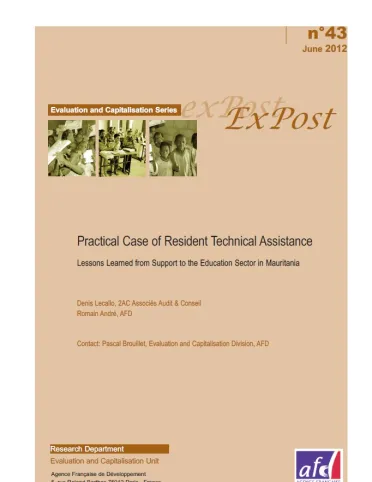Share the page
Practical Case of Resident Technical Assistance. Lessons Learned from Support to the Education Sector in Mauritania
Published on

Since the Paris Declaration, the topic of “capacity development” has gained considerable momentum in the reflection on Official Development Assistance (ODA). The international community had previously relied on heterogeneous practices and had pursued sometimes contradictory objectives. It therefore felt the need to overhaul this notion and come up with a common vision of what issues it involves. And these are major issues because, according to the DAC/OECD definition (2006), capacity development refers to “the process by which people, organisations and society as a whole create, strengthen and maintain their capacity over time”.
Against this background, AFD, like other donors, decided to conduct strategic reflection on capacity development. The aim is to enhance the quality of its operations and thus ensure that there is a sustainable impact on the performance of its partner organisations. This project necessarily entails a phase to capitalise on AFD’s current practices, and notably on its assistance methods. The history of one of them, resident technical assistance (RTA), makes it a focus of attention. The aim of the capitalisation is to use a practical case in order to learn lessons from the strengths and weaknesses of RTA as a tool to support capacity development and to map out ways to improve it and make it more effective.
Useful Information
-
Authors
-
Laurent BOUTOT
-
Coordinators
-
Pascal Brouillet
-
Edition
-
43
-
Number of pages
-
35
-
ISSN
-
1958-590X
-
Collection
-
ExPost Evaluation
-
Other languages
